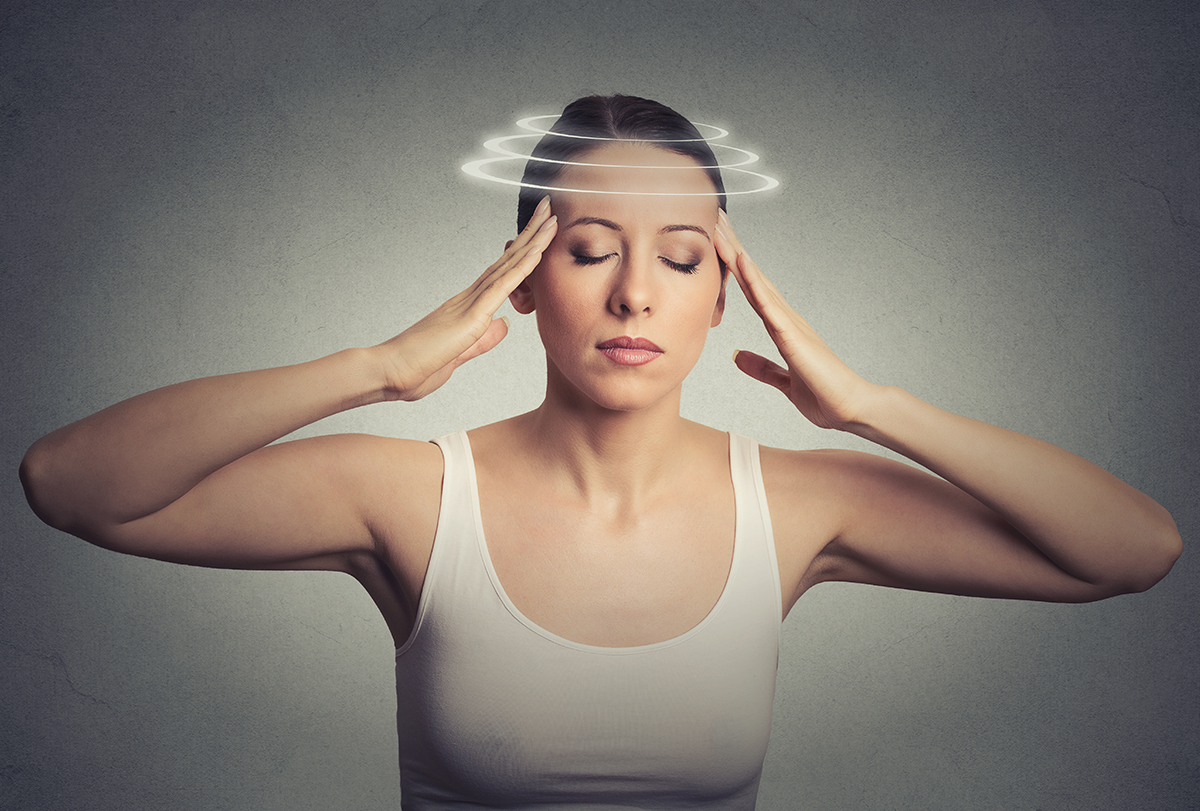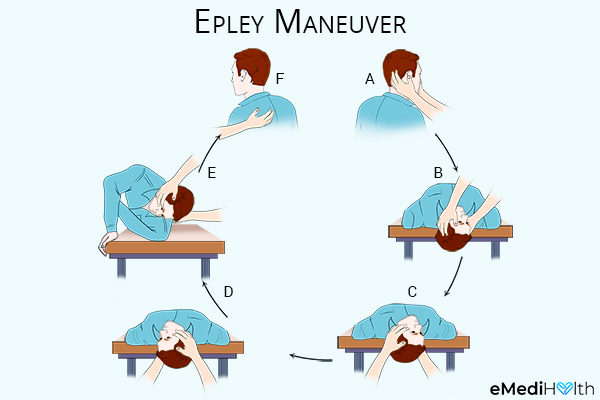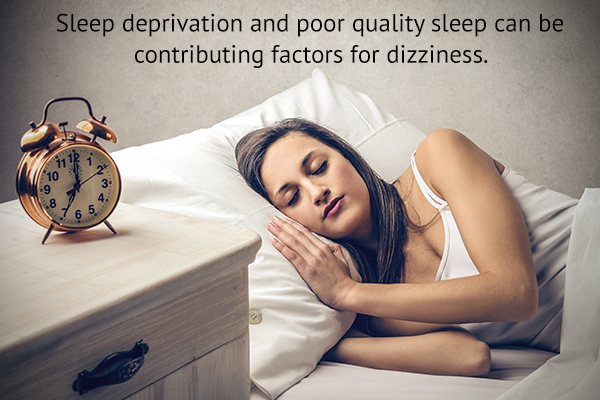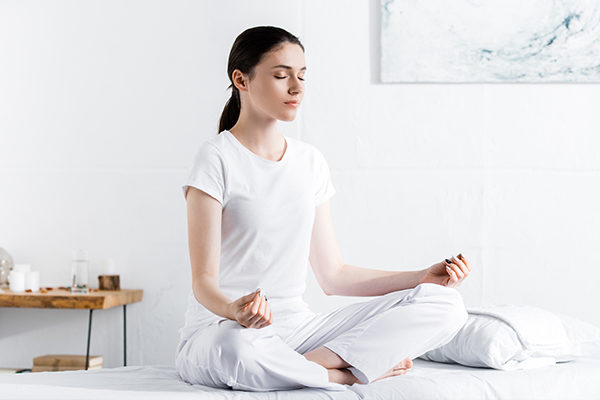In this article:
People often use the term “dizziness” to refer to both lightheadedness and vertigo. However, it is vital to understand the difference between the two for proper diagnosis and treatment.

Dizziness can affect people of all ages but is found to be more common in old age. This concern generally causes older adults to limit their activity, as it can cause falls and injuries. However, there are various measures one can take to manage and prevent dizziness.
Home Remedies for Managing Dizziness
There are various home remedies that can help improve dizziness. However, most of these remedies are based on anecdotal claims and lack proper scientific evidence.
1. Vitamin D supplements
Taking Vitamin D supplements may help reduce the frequency of recurrent benign positional vertigo, which is one of the major causes of dizziness.
While preliminary research has pointed to the efficacy of vitamin D supplementation as a means for mitigating vertigo, further large-scale studies are needed to validate and conclusively establish its beneficial effects. (1)(2)
Always check with your doctor before starting any supplementation to rule out any potential side effects and determine the correct dosage.
2. Ginger

Ginger tea has emerged as a popular anecdotal remedy for nausea and dizziness, with many users reporting considerable relief after trying it. But these claims need to be researched more rigorously to establish the exact efficacy, mechanism, and proper dosage of this remedy.
All in all, this therapeutic tea is easy to prepare and is known to work rather fast in alleviating dizziness without causing any adverse side effects. Simply mix one small teaspoon of powdered ginger root in a cup of boiled water, let it steep for a few minutes, and then drink the tea while hot.
Alternative Treatment
Alternately, dizziness can be treated in the following ways.
1. Try the Epley maneuver

There is a specific exercise that can help relieve vertigo-induced dizziness, known as the Epley maneuver. (3)(4)
You can easily do it at home in the following way:
- Sit on a flat surface with your spine upright, which will be your starting position.
- Slightly tilt back your head and turn it about 45° to the left.
- Now, slowly lie down flat on your back while keeping your head turned to the left, and stay in this position for half a minute.
- Then, move your head to the right by 90°, keeping it tilted back slightly, and hold this position for half a minute.
- Next, turn your entire body to the right including your head until you are almost facing the floor, and stay like this for another half a minute.
- Return to your starting position.
Once you have completed the entire exercise, you are free to lie down or move about normally.
Note: You must learn the technique from an expert to do it right. Moreover, people with a history of hypertension, neck and back problems, or a detached retina must consult their doctor before trying the Epley maneuver.
2. Visit an acupuncturist
According to the ancient Chinese school of medicine, dizziness is triggered by certain imbalances in the body which can be corrected through a specialized technique called acupuncture.
It involves pricking needles at specific pressure points on the body, which must only be done by a trained hand to avoid injuries. Acupuncture, when done correctly, can relieve stress, restore balance, and stimulate blood circulation to alleviate the symptoms of dizziness. (5)(6)
Lifestyle Changes and Self-Care Tips for Dizziness
If you are feeling dizzy or light-headed, you may find the following advice helpful:
1. Try to lie down
The first-line treatment for dizziness is to lie down flat on your back to accelerate blood flow to the brain. The force of gravity directs the oxygen-carrying blood to your head, which energizes your brain and helps relieve the light-headedness.
2. Sleep well

Since your brain and body rest and repairs during sleep, sleep deprivation, or poor-quality sleep can contribute to dizziness.
The current overworked lifestyles, high-stress, and age impede restful sleep, leaving your brain and body tired. Even kids have sleeping problems due to their extensive hours of screen time.
Thus, you must adopt healthy sleeping habits and follow a bedtime ritual to prepare your body for sleep. This is known as “sleep hygiene.” This basically focuses on creating conditions that are conducive to sleep, such as:
- Avoiding invigorating discussions
- Avoiding exercise or eating close to your bedtime
- Avoiding the use of caffeine or stimulants in the afternoons and evenings
- Avoiding daytime naps
- Avoiding eating too close to bedtime
- Avoiding the use of LED screens and other sources of blue light or any source of mental stimulation close to bedtime
- Ensuring your sleeping space is clutter-free and noise-free
- Maintaining a comfortable room temperature
- Ensuring your room is dark
3. Be careful when traveling
Dizziness can be extremely dangerous if it attacks you out of the blue while you are driving, crossing a busy street, or operating a machine.
Your body loses balance, your muscles become lax, and it feels like everything is spinning out of control. In such a state, you must discontinue any high-risk activity that you are doing at the time to avoid potential hazards/accidents.
- If you are driving and feel even remotely dizzy or disoriented, pull over and wait for the feeling to subside.
- Do not operate machinery until you are in the right frame of mind.
- Be careful while climbing down or up a flight of stairs, and always hold onto the railing tightly for support.
- People who are prone to motion sickness and dizziness should avoid reading or working on a computer while riding a vehicle. The constant movement, coupled with the extra mental load of these activities, can trigger the problem.
4. Quit smoking
Smoking is a risk factor for dizziness. In fact, both active and passive smoking can make you more prone to this problem in addition to various other grievous illnesses.
Thus, it is in the interest of your overall health in general and avoiding dizziness in particular that you should consider quitting the habit. Avoid secondhand smoke as well.
5. Drink enough fluids

Since dehydration is a major cause of dizzy spells, you must keep your body sufficiently hydrated. The recommended fluid intake may vary from person to person, but experts generally advise drinking at least 6-8 glasses of water a day.
You can fulfill part of your fluid needs by consuming citrus fruits, juices, and soups. Also, make sure to avoid alcohol, caffeine, and other diuretic fluids that can drain the water out of your body by triggering excessive urine formation.
In one study, increased water intake was found to help reduce the intensity or frequency of dizzy spells in patients with Meniere’s disease. However, this claim needs to be corroborated by more comprehensive trials with a larger subject group for large-scale advocacy. (7)
6. Correct your sleeping posture
Prop your head on two or three pillows when resting or going to sleep. Moreover, you should sleep on that side of the body that is less affected by the dizziness or vertigo symptoms. This kind of mindful sleeping may help prevent recurrent vertigo. (8)
7. Avoid sudden or fast head movements
Dizziness is often brought on by standing up or sitting down too quickly due to the sudden rush of blood away from the head as a result of gravity. Therefore, it is advised to ease into activity after periods of prolonged rest, such as when you wake up from sleep.
People who have vertigo or frequent episodes of dizziness are advised not to move their head abruptly. Gradual head movements allow the brain and blood vessels time to adjust, whereas rapid movements aggravate the symptoms.
8. Have a massage
Massaging the body with gentle hand movements helps relieve the pent-up stress in your muscles and nerves and has a deeply relaxing effect on your entire being.
Not just that, the topical stimulation helps improve blood circulation. The increased blood supply delivers more oxygen and nutrients to the entire body and the brain. Massage may help alleviate dizziness exacerbated by anxiety/stress, as well as neck pain and tension.
9. Eat healthy
Limit your consumption of sugar, caffeine, and sodium. Excessive sodium intake can disrupt the balance of body fluids and exacerbate dizziness. Prefer foods that contain complex carbohydrates, such as legumes and whole grains, over those loaded with simple sugars, such as table sugar and honey.
Excessive caffeine can lead to dehydration since caffeine is a diuretic, which then leads to dizziness. So limit your intake of coffee, tea, and other sources of caffeine.
10. Manage your stress

Stress compromises your body’s ability to function at its best. It also undermines your immune system and thus makes you more vulnerable to health problems, including a dizziness-inducing Meniere’s attack.
Even though stress management is central to healthy living, there is no way to escape stress completely. The best you can do is avoid things and situations that contribute to it and adopt coping mechanisms and relaxation techniques that can relieve stress.
11. Rest
If your dizziness is caused by overheating or dehydration, rest in a cool place and drink water or a sports drink (Gatorade, Powerade).
Dizziness Versus Vertigo

Dizziness includes feeling faint or light-headed (presyncope), loss of body balance, a false sense of spinning (vertigo), muscle weakness, and general unsteadiness or disequilibrium. Thus, dizziness is an umbrella term of which vertigo is a subtype.
Vertigo, particularly, is characterized by disorientation in space. Dizziness can be triggered by a host of reasons, from general weakness, dehydration, low blood sugar level, certain medications, and low blood pressure to vestibular dysfunction or poor functioning of the inner ear balance system. Vertigo is almost always caused by inner ear problems.
Final Word
It is normal to feel dizzy at times due to sudden movement, dehydration, or a lack of sleep. Make sure to lie or sit down when you feel light-headed to avoid accidents and injuries.
However, if the problem is severe, persistent, or accompanied by other symptoms such as fainting or irregular heartbeat, it may be indicative of an underlying cause. In such cases, consult a doctor for proper diagnosis and treatment.

- Was this article helpful?
- YES, THANKS!NOT REALLY


